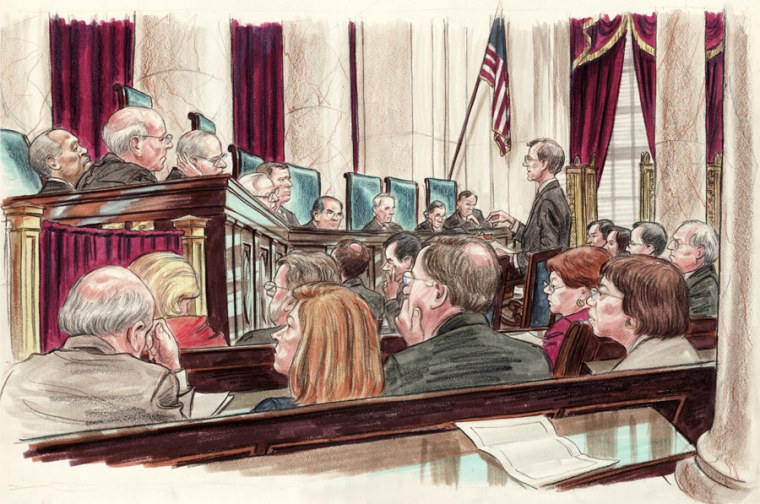Proponents and opponents of imposing the death penalty for rape of a child underwent intense questioning Wednesday from a seemingly divided Supreme Court.
The hour-long argument came in the case of inmate Patrick Kennedy, sentenced to death for raping his 8-year-old stepdaughter.
Kennedy's lawyer, Jeffrey L. Fisher, told the court the death penalty for child rape under Louisiana law violates the Eighth Amendment protection against cruel and unusual punishment.
Chief Justice John Roberts and Justice Antonin Scalia challenged Fisher's position that the Louisiana law is too broad and that not enough states have enacted the death penalty for child rape to justify the Supreme Court's support for it.
"The trend has been more and more states are imposing the death penalty," said Roberts.
Louisiana is among five states that have imposed the death penalty for child rape since 1995.
Broadening the death penalty?
The case represents a potentially different direction for a court that in recent years has narrowed the death penalty, overturning it for murderers who are juveniles or are mentally retarded.
Kennedy is "exquisitely culpable" and he has committed a crime that is "just unspeakable," Texas Solicitor General R. Ted Cruz told the court.
Louisiana prosecutor Juliet Clark described the injuries of Kennedy's stepdaughter, which required surgery, arguing that a crime of such savagery warrants Kennedy's execution.
Justice Stephen Breyer expressed concern that "suddenly we will be in the business" of broadening the death penalty for crimes other than murder.
"I am not a moralist, I am a judge," said Breyer.
Kennedy is one of only two people, both in Louisiana, on death row in the United States for raping a child without also killing the victim.
No one has been executed for anything other than murder in 44 years. In 1977, the court ruled out executions for rapists whose victims are adults.
It left open the issue of whether raping a child could lead to death.
Arguments in the Louisiana case came on the same day the high court settled an issue that had put executions across the nation on hold for months. The justices turned back a challenge to procedures for execution by lethal injection in Kentucky. Similar methods are used by roughly three dozen states.
Besides Louisiana, Montana, Oklahoma, South Carolina and Texas also allow executions of someone convicted of child rape, although the latter four states never have applied the death penalty to child rapists. Missouri, led by Gov. Matt Blunt, is considering a similar law.
Those states say there is a trend toward toughening penalties for people who victimize children and contend that death is an appropriate punishment for so horrific a crime as the rape of a child.
Kennedy's lawyers say more states have rejected the death penalty for child rapists and that the reasoning of the court's 1977 decision — that death is an excessive penalty for a rapist who does not also kill — should apply even when the victim is a child.
Groups that work to prevent sexual violence also have sided with Kennedy. They say victims often know their attacker — a relative or family friend — and that more rapes will go unreported if children have to worry that their words might lead to an execution.
The other inmate, Richard Davis, was sentenced to death in the Shreveport area in December. He has just begun appealing his conviction and sentence.
The case is Kennedy v. Louisiana, 07-343.
